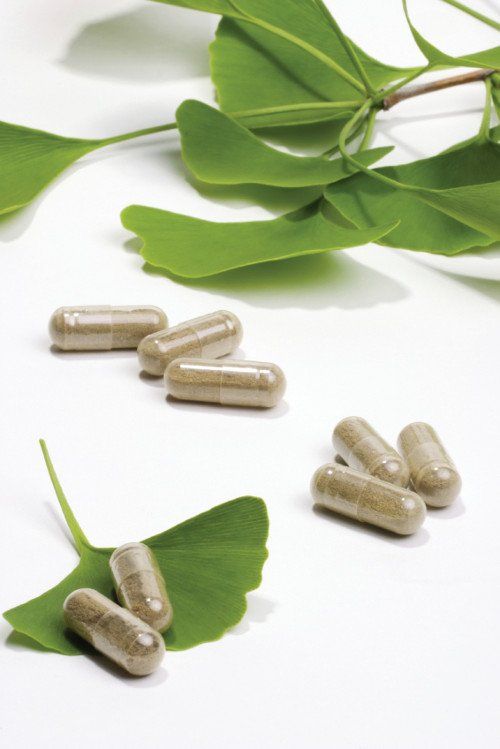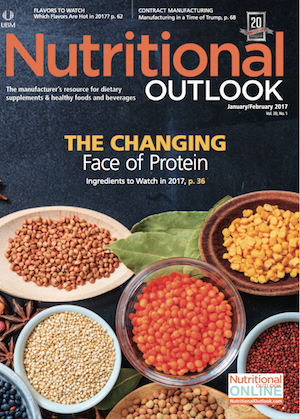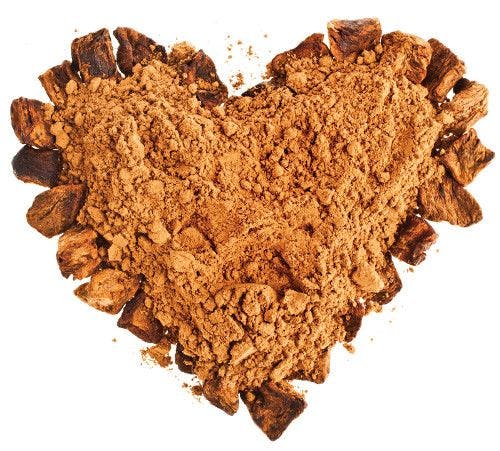2017 Ingredient Trends to Watch for Food, Drinks, and Dietary Supplements: Ginkgo
Of all the ingredients at risk of adulteration in 2017, ginkgo is perhaps one of the most vulnerable.
Photo © iStockphoto.com/evgenyb

Not all ingredients are ingredients to watch for happy reasons. Some ingredients, especially some herbs, should stay on the industry’s radar because they are at risk of being economically adulterated. Of all the ingredients at risk of adulteration in 2017, Ginkgo biloba is perhaps one of the most vulnerable.
“It certainly looks like ginkgo adulteration has been on the rise based on the numbers I have seen in the published literature,” says Stefan Gafner, PhD, chief scientific officer for the American Botanical Council (ABC; Austin, TX). Gafner is also the technical director of the Botanical Adulterants Program, a coalition of herbal experts dedicated to educating the public about the risks of botanical adulteration and how to prevent it.
Gafner is not alone in pointing to this ongoing problem. John Travis, senior research scientist for NSF International’s (Ann Arbor, MI) dietary supplement program, says NSF also continues to detect incidents of ginkgo adulteration-“despite all the publicity [this problem] has received.”
In recent years, the Botanical Adulterants Program, as well as ABC’s own journal HerbalGram, have written about numerous studies in which scientists have discovered spiked samples. As recently as 2015, Gafner-together with researchers from the University of Mississippi’s Natural Center for Natural Product Research, and Roy Upton, president and CEO of the American Herbal Pharmacopoeia (Scotts Valley, CA)-reported the results of a study in which they found that 19 out of 25 (76%) ginkgo dietary supplements they purchased online from retailers in the U.S. and tested were in fact adulterated.[1]
Part of the problem, Travis says, is that current methods to detect ginkgo adulteration are somewhat limited. According to Travis, these methods have difficulty telling when less-expensive ingredients like rutin, quercetin, kaempferol, or Sophora japonica extract have been added to a ginkgo extract in an attempt to artificially create the ideal ratio of flavonol glycosides and terpene lactones. As he a result, he says, “the limitation of the official methods to discriminate whether aglycones [of quercetin, isorhamnetin, and kaempferol] were initially present in the ginkgo, or whether excess amounts of rutin or other inexpensive glycosides of quercetin and kaempferol were added, may lead to higher risk of ginkgo adulteration.”
“In some instances, it is not clear if a material has been adulterated with extracts from other plant species indeed, or if differences in the manufacturing processes have led to an increase in certain flavonoids-in particular, quercetin, kaempferol, and isorhamnetin,” Gafner adds.
For now, it’s difficult to say exactly how big the problem truly is, says Mark Blumenthal, ABC’s founder and executive director, simply because there isn’t currently a “baseline analysis” by which to compare a wide range of ginkgo extracts and finished products. As such, “we do not know what the size of this is,” Blumenthal says. “We do not know if it constitutes 20% or 25% or 30% or 40% or even over 50% of total GBE [Ginkgo biloba extract] sales.”
But suffice it to say, it’s imperative that any company selling ginkgo products be vigilant of bad actors within the category over the coming year and well into the future. Adulteration will be a risk as long as Ginkgo biloba extract is in high demand with consumers (who believe in the herb’s studied health benefits, especially for cognitive support) and while suppliers look to push their ginkgo prices down. According to ABC’s most recent U.S. herbal-sales report from 2015, ginkgo sales were up nearly 15% in the U.S. mainstream channel and up nearly 8% in the natural channel.
“All purchasers of ginkgo as an ingredient in a dietary supplement need to be aware and change their specifications to expose this type of adulteration,” says Travis. In addition, he says, “The official methods must be modified to prevent the potential of exploitation by deceitful suppliers. In my opinion, unless those two steps are taken, the financial incentive to adulterate is too enticing, and the practice will continue.”
Gafner says he is “optimistic” that conditions will eventually improve. He adds that the Botanical Adulterants Program hopes to publish a Botanical Adulterants Bulletin on ginkgo adulteration next year.
“Manufacturers are increasingly aware of the problem and seem to be willing to pay higher prices for material of good quality,” Gafner says. “However, I don’t think the situation will change overnight, and manufacturers should have appropriate quality-control systems in place to verify the authenticity of their ginkgo extracts.”
Also read:
Dietary Supplements: New Testing Tools to Catch Botanical Adulteration
Nutritional Outlook's 2016 Best of the Industry, Industry Leader: Botanical Adulterants Program
The Latest Testing Techniques for Catching Dietary Supplement Fraud and Adulteration
2017 Ingredient Trends to Watch for Food, Drinks, and Dietary Supplements:
Plant Protein vs. Dairy Protein
Hemp CBD, Vinpocetine, and Kratom
Jennifer Grebow
Editor-in-Chief
Nutritional Outlook magazine
jennifer.grebow@ubm.com
References:
[1] Avula B et al., “Identification of Ginkgo biloba supplements adulteration using high performance thin layer chromatography and ultra high performance liquid chromatography-diode array detector-quadrupole time of flight-mass spectrometry,” Analytical and Bioanalytical Chemistry, vol. 407, no. 25 (October 2015): 7733-7746

Prinova acquires Aplinova to further increase its footprint in Latin America
April 7th 2025Prinova has recently announced the acquisition of Brazilian ingredients distributor Aplinova, which is a provider of specialty ingredients for a range of market segments that include food, beverage, supplements, and personal care.

























